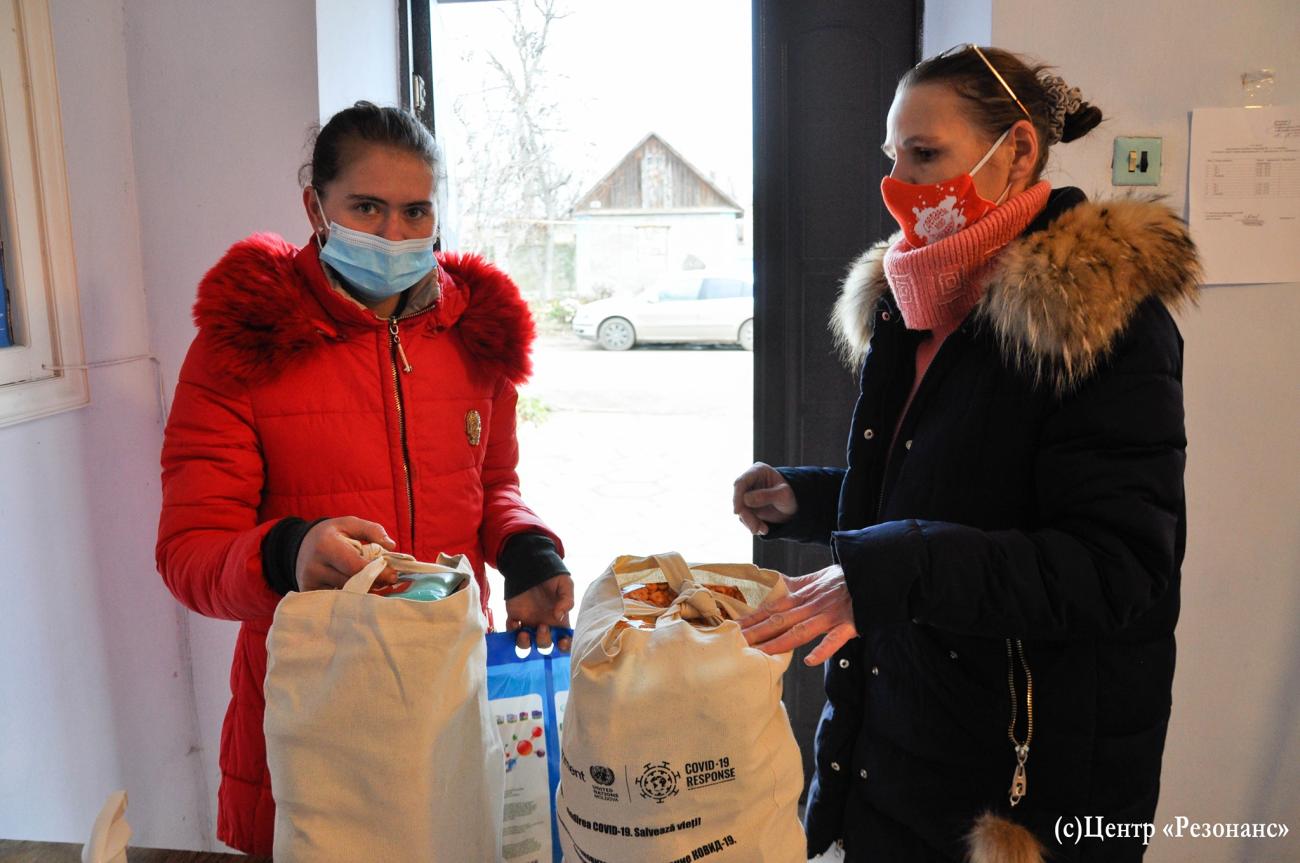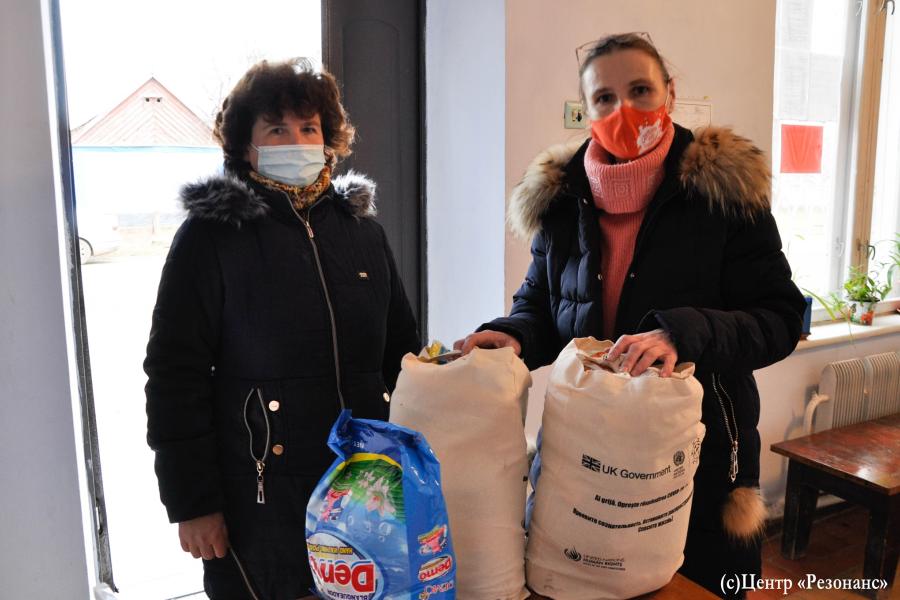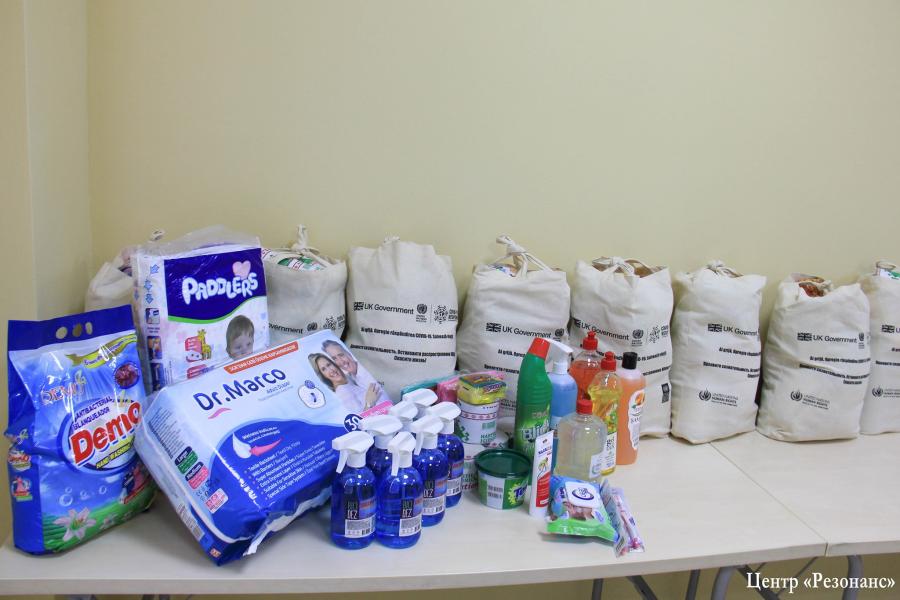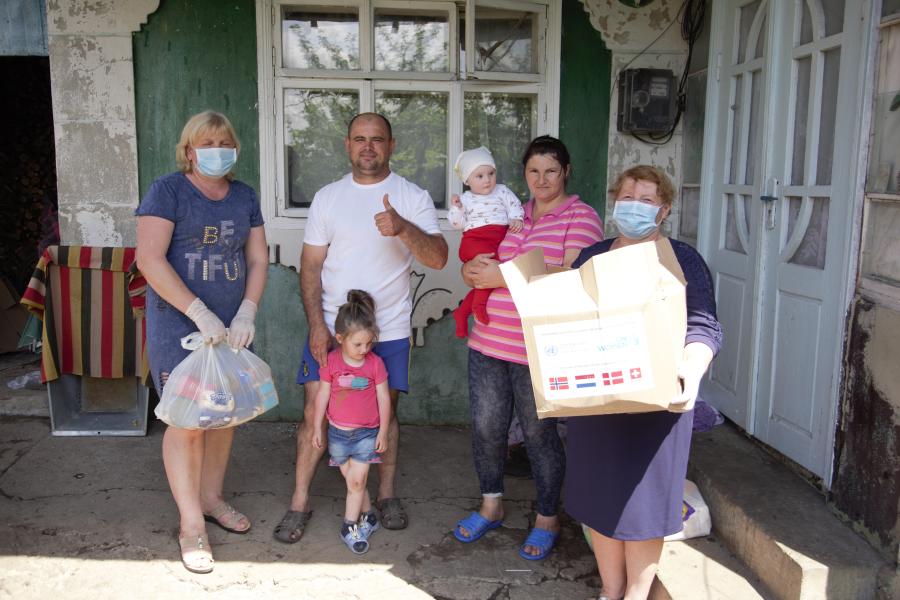They risked their own health and life to help those who would not have survived the pandemic impact

We have been living in crisis and alert conditions for over a year. We have been fighting the new coronavirus and its effects for over a year.
Certainly, all were affected in a way or another by the COVID-19 pandemic, but the persons from vulnerable groups have suffered the most: women, elderly, persons with disabilities, persons living with HIV/AIDS, members of LGBTI community or frontline health workers.
'Since the onset of the pandemic, in April, the number of calls and requests for assistance has doubled compared to the same period of last year. As in other parts of the world, the number of victims of domestic violence has increased, as a result of isolation with the aggressor and additional tension, because many have been left without work, coupled with psychological stress," says Alexandra Martynenko, Coordinator of Women's Crisis Centre in Tiraspol.
The Women's Crisis Centre (hereinafter Center) is part of the Center for Development and Support of Civil Initiatives “Rezonans” in Tiraspol. It provides assistance to victims of domestic violence since 2009, and in 2015 opened the first and only shelter in the Transnistrian region for women in critical situations. The average number of persons who can be accommodated in the four rooms is 12 adults and 3 small children.
According to evaluations on the COVID-19 impact on different groups of persons and socio-economic sectors conducted by the UN Agencies in Moldova, the women are considered one of the most affected vulnerable groups during the pandemic. At the same time, according to a Study conducted by the UN Women and National Bureau of Statistics, the number of domestic violence cases reported by the victims has increased by 30% during the pandemic.
After the declaration of the state of emergency in public health and the lockdown for over a month, the shelter, for the first time, was full
'For two months we had more requests than we could cover - 16 persons. It was the highest number of persons we hosted ever. In principle, we did not refuse anyone ever; it never happened that someone needed shelter and we did not provide it', says Alexandra Martynenko, the Coordinator of the Centre.
As the number of requests for help grew, including due to considerable limitation of access of vulnerable people to public services, which are so necessary during crisis, the Centre continued to operate seeking possibilities to help persons irrespective of risks to own health and life.

'Unlike many other centers that closed their doors, we worked every day, from the beginning of the state of emergency, during the pandemics. We were forced to develop rules and requirements for our experts, residents and visitors of the shelter. It was a unanimous decision of the entire team to help people, because the number of requests grew and we could not leave. We bought quartz lamps to purify the air. And fortunately, we did not have contamination', says the Coordinator of the Center.
The Center is one of the civil society organizations that received assistance from the UN Agencies in Moldova via the UN COVID-19 Multi Partner Trust Fund implemented by the UN Women, IOM and UNICEF (part of COVID-19 response plan mentioned below), as well as through the project supported by the United Kingdom of Great Britain implemented by UNDP, WHO and OHCHR.
'I am a widow with 4 minor children, the survivor indemnity allowance (survivor pension) does not cover all family needs. This help is very useful, both the groceries and hygienic products.', says Lyubov, 30 years old, one of the beneficiaries of the support.
'Nobody gave me such gifts before. I am a disabled person of Group 2. I live with my daughter who is temporary unemployed. It is very nice and moving to tears. We would like to thank the organizers for the assistance provided in those difficult moments', says Natalia, 50 years old, another beneficiary of the support.
The support was provided to residents of Tiraspol, Bender, Grigoriopol, Dubasari, Ribnita and Camenca. Over 150 households (numerous families, single mothers and fathers, unemployed women, persons with disabilities, elderly) received food packages and hygiene products, and it means about 600 persons who benefited from support in that difficult period of time.

Long before the first case of COVID-19 was registered in our country, the UN Moldova had an efficient and ongoing communication with state authorities, providing immediate aid to the country to fight with the new coronavirus and face new challenges. At the same time, by anticipating the effects of the pandemic and imposed restrictions, the UN team developed a COVID-19 Socio-Economic Response and Recovery Plan based on conducted evaluations. The Plan contains 101 actions/projects that provide immediate and medium-term support with a special focus on vulnerable and marginalized population and groups, as well as persons that risk to be left behind.
'The assistance was more than timely because many women lost their jobs either because they were working unofficially or worked overseas, and with borders closing, they were forced to return. Other businesses closed down and they were left without an income to feed two, three or four children. For them, these groceries and hygienic products are almost the only way to last for a while. Women with babies received diapers', says the Coordinator of the Center.

Due to timely identification of persons affected by the pandemic and their needs, carried out by the UN Office for Human Rights in Moldova, a total of 4000 women from vulnerable and under-represented groups received food, hygiene and personal protection kits via the Trust Fund.
The total budget required to implement the COVID-19 Response and Recovery Plan is USD 106 million, of which over USD 20 million have already been provided thanks to the support of the development partners and UN Agencies.


